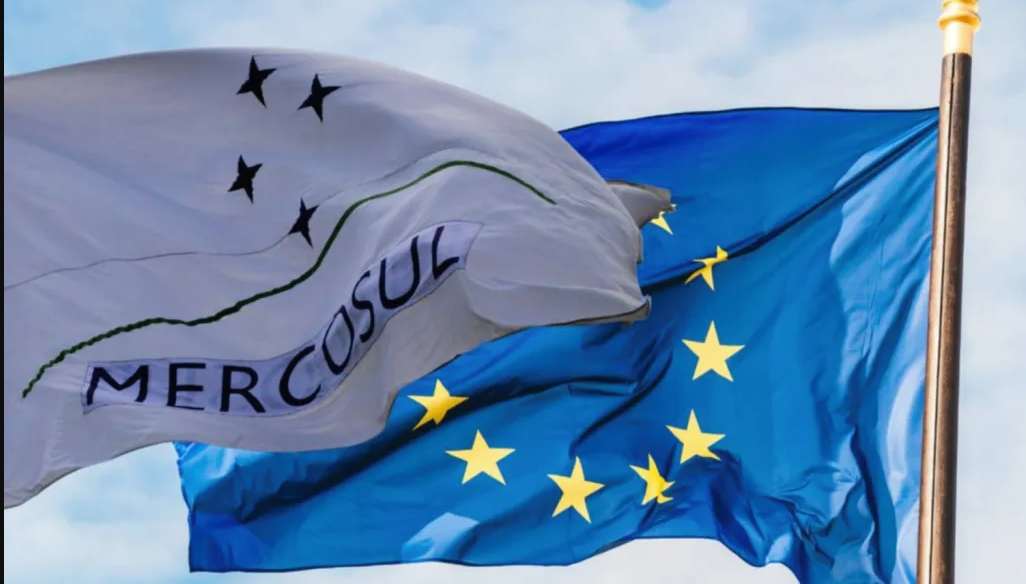
After nearly three decades of talks, negotiations on the agreement between the European Union and the Southern Common Market (Mercosur) have advanced, and both parties reached an agreement in December 2024 in Montevideo. The president of the European Commission, Ursula von der Leyen, personally attended the signing ceremony in Uruguay. While the European Commission’s proposal is expected to be presented to its member states before the end of the year, it may still take several years before the agreement comes into effect.
The EU–Mercosur Association Agreement would be one of the largest trade agreements in history, covering nearly 800 million people. The Mercosur bloc includes Argentina, Brazil, Paraguay, Uruguay, and Bolivia, while Chile, Ecuador, Guyana, Colombia, Peru, and Suriname hold associate member status.
Once implemented, the agreement’s economic and geopolitical weight will be considerable. At a time when the World Trade Organization (WTO) appears powerless and Donald Trump’s unpredictable policies are eroding traditional partnerships, Mercosur represents a window of expected economic growth for Europe. The agreement strengthens the traditional relationship between the EU and Mercosur in a new way and reaffirms the normative foundation of the international system—showing that somewhere, faith in cooperation still exists.
The association agreement signed in Montevideo does not require approval by all EU member parliaments—only a qualified majority. Moreover, a provisional trade agreement is being proposed, aimed at putting tariff-free trade and cooperation into effect as soon as possible. Parts of the association agreement may also be applied provisionally, and if the final agreement is ever ratified, it would replace the provisional one.
The deal liberalizes over 90% of trade between the EU and Mercosur countries. In practice, it will directly facilitate access for European products and services to South American markets by removing most existing tariffs. Mercosur countries currently apply high tariffs—35% on automobiles, and between 14% and 20% on machinery and equipment—and there are many other trade barriers in the region. German industry circles, in particular, see valuable opportunities in the protected markets of Brazil and Argentina. The agreement will also make it easier for European industries to participate in public procurement processes, as seen with Finland’s pulp industry, which already enjoys a strong position in countries like Uruguay and Brazil.
At the same time, Mercosur’s cooperation in raw materials will support the EU’s efforts to reduce its current energy dependencies. The agreement would also help slow Europe’s loss of influence in Latin America and, at least partially, counter China’s growing presence in the region.
Mercosur has not been free of challenges, but its members’ desire for privileged access to the European market has, in many ways, been the glue holding the bloc together. For Brazilian agriculture, the agreement offers not only tariff-free sales but also a reputational boost: exporting to the EU means entering one of the world’s most demanding food markets and could even ease political tensions over Amazon deforestation and food security.
European opponents of the deal, on the other hand, are using the structure of the treaty to once again try to delay or block its entry into force. Although several EU member states appear to support the agreement, agricultural countries in central and southern Europe have historically opposed any type of trade liberalization. Farmers, labor unions, and environmentalists have organized protests in France, Ireland, Austria, and Poland, warning against unfair competition, food safety risks, and environmental harm in the Amazon.
To appease critics, the European Commission has proposed several measures: a €1 billion fund for farmers, a gradual reduction of tariffs, protection for over 350 brands, and additional protocols on sustainable development.
For Europe, a partnership with Mercosur would boost economic growth and provide an advantage in areas such as the sustainable use of Latin America’s vast natural resources. For South America, the agreement would breathe new life into its fragile bloc. If Europe lets this opportunity slip away, it could turn the Mercosur deal into a “wobbly table”—a missed chance for renewed transatlantic cooperation.
*Machine translation, proofread by Ricardo Aceves.














